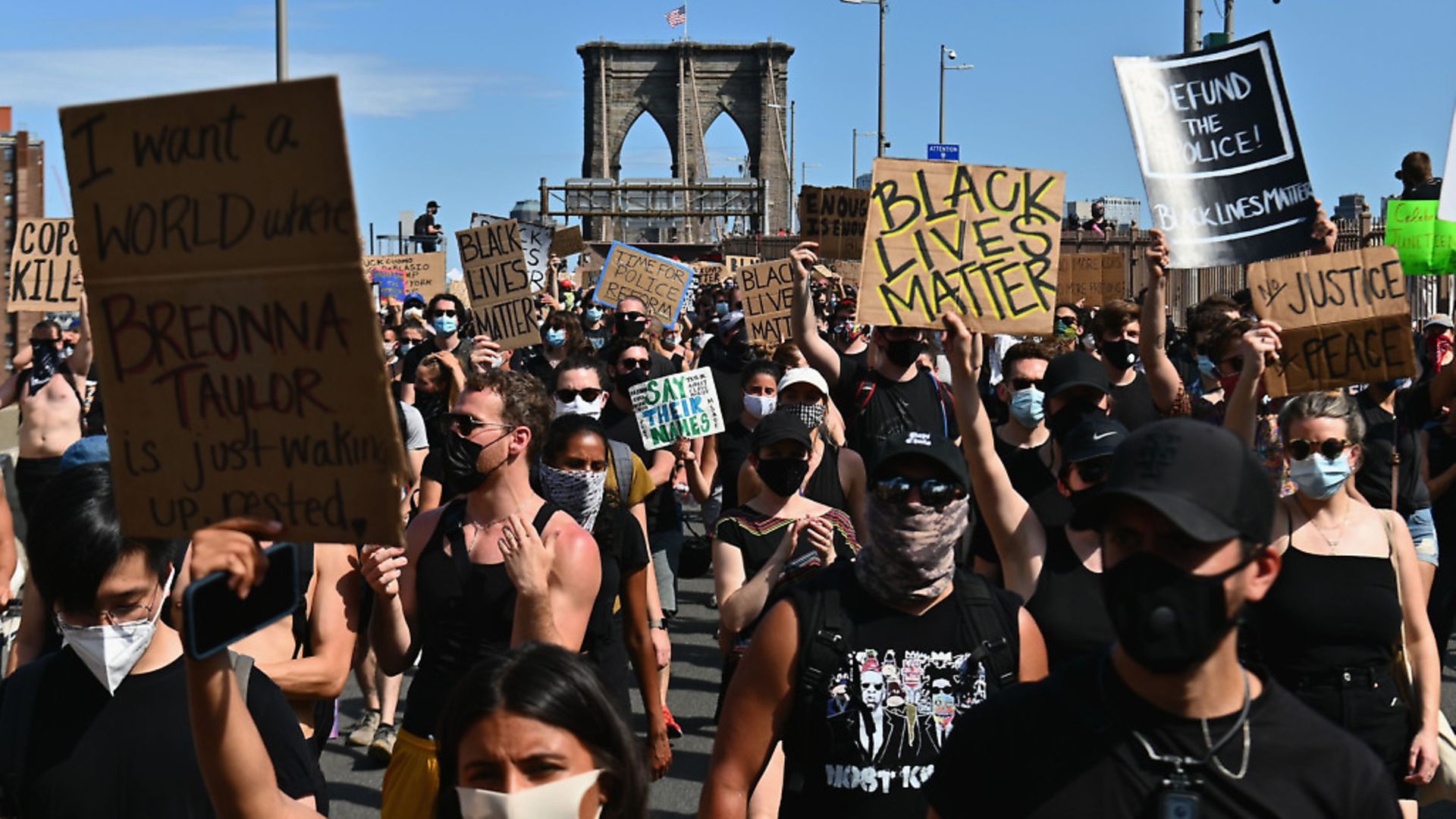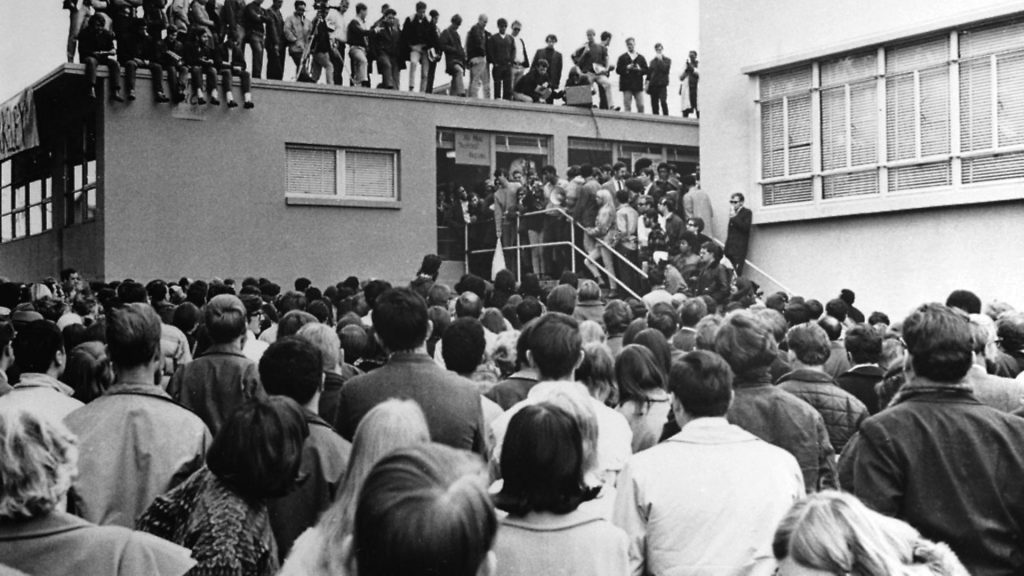
As the Black Lives Matter revolution brings racism to the forefront of public debate, BONNIE GREER looks back on her life as a black woman in America and using her voice to guide future generations.

The great actor Samuel L. Jackson and I have a few things in common besides our nationality and our ethnicity.
We were born within a month of each other, so are the same age.
Being the same age and generation and born black in America, then, means the following: we had parents who nurtured us and warned us about the realities that we would encounter because of the colour of our skin.
We respected Dr. Martin Luther King Jr. He was the father of our generation. But we preferred Malcolm X because he stood up to white people in the most elegant and articulate way.
We were not going to sit at lunch counters demanding the right to be seated while white racists poured ketchup on our heads. We were not going to peacefully march singing We Shall Overcome while high-powered water cannon was unleashed, police dogs were set on us, or worse.
We, the black baby boomers, were, as the greatest woman poet in the English language, Emily Dickinson, wrote in her poem Wild nights – Wild nights!: ‘Done with the Compass – Done with the Chart!’
The present day refrain ‘Defund the police!’ was for us ‘Off the police!’.
We did not pull statues down. Who cared about that? We took our university deans literally hostage; we riffled through their files; we made demands; we jumped up on our desks in classes and began teaching what we considered to be history right in the face of distinguished academics with masses of publications behind them and PhDs.
We changed our names to mostly Ghanaian names. Many of us knew nothing about Ghana; we read Black Panther comics, so what the hell. The point was: no more ‘slave names’.
Like Samuel L. Jackson, I was involved in the Black Arts Movement in which we demanded that the theatre produce black plays, hire black directors and black actors. Right now.
I was a young playwright with the Negro Ensemble Company in the late 1970s and early 1980s and knew the playwright who wrote A Soldier’s Play. The original cast included Samuel and Denzel Washington. Neither of them, by the way, were cast in the Broadway production.
The poignancy of this play is that it is about my dad’s generation in World War Two: the guys who fought for the United States and the Free World – in a rigidly racially segregated US military.
My late dad was at Camp Selby in Mississippi before landing in England as part of the preparations for D-Day. Camp Selby also held German PoWs, from Rommel’s Afrika Korps.
Dad used to tell me that those guys ate better and got more respect from the white officers than he and the other black men on the base did.
Reality and treatment like that can create trauma in a human being.
For black people, the trauma of racism is real and passed down from generation to generation. The main character in A Soldier’s Play, is a black officer who hates himself and hates his men. The moment of revelation comes to him as he lies dying, killed by one of his own men who has had enough of the abuse.
The black officer’s dying words are: ‘They still hate you.’
In other words, no matter what you do, no matter who you are, white people still hate you.
That was my youth.
I lived with that every second; ate it; went to sleep with it; and along with it came trauma. The everyday petty racism, the lack of respect, the lack of trust; the just plain lack of everything that black people face and have to deal with on an everyday basis takes an enormous amount of energy. You can fall ill. Your immune system can be weakened from the strain of it, making you unable to fight off infection. You can die from racism.
Mine and Samuel L. Jackson’s generation walk around with a great deal of inner pain and wariness and rage and fear.
We are afraid for the younger generation out there in the streets.
We do not want them, quite simply, to die.
Not to die literally, but also not to die in spirit.
We see things that we want to caution them about.
But we did not listen to older people. Neither will they.
The world belongs to them now; like Samuel says and he’s right.
And frankly, Millennials and Gen Z are cleverer than we were. Not as romantic. They know that a revolution must be a buy-in, in the end, for everyone.
My job and Samuel’s is to make sure that the doors we can open stay open for them; that we stand up for them; that we issue our warnings from the past. For them. To be of use is what we try to be. What we must be.
Two institutions and three individuals who enable me to be of use are white and male. On paper, this is not a match. And yet…
One of them is the 22nd man to head the British Museum: Hartwig Fischer, European with a formidable intellect and reputation in the cultural world. He and I are creating together a project at the museum that is diversity itself and which we are calling ‘The Era of Reclamation’.
It will listen to and address the big questions and issues that all museums face now. Without flinching. We will build; rebuild. This project will enable me to pass on agency to others. Because real diversity is not yet another report on its lack.
It is not marches, either; nor pulling down statues; nor corporations stumbling over one another to put black people on boards etc.
It is the open door without barriers. It is listening with intent. Purpose: to do something that sticks. To allow agency.
Along with Hartwig Fischer, this newspaper – under its two editors, Matt Kelly and now Jasper Copping – has, too, given me agency. My brief on these pages is that I have no brief. I write what the hell I like.
In the end, black people just simply want to be. We can do the rest.
And these generations, in saying ‘Black Lives Matter’, are saying that’s what they want and that they will breathe. They have created a human rights revolution. Something that my generation could not possibly have done.
BLM is smart enough, quick enough, and far-seeing enough to realise that in the end, we will all go down together if African people and people of African descent continue to be seen and treated as less. It is as simple and as profound as that.
So to the three guys and to this paper The New European – on the occasion of its 200th issue – I say what I used to hear New York City Italian Americans say to each other while toasting: ‘Cent’anni’ – ‘100 years.’ In other words: I wish you a long life.










